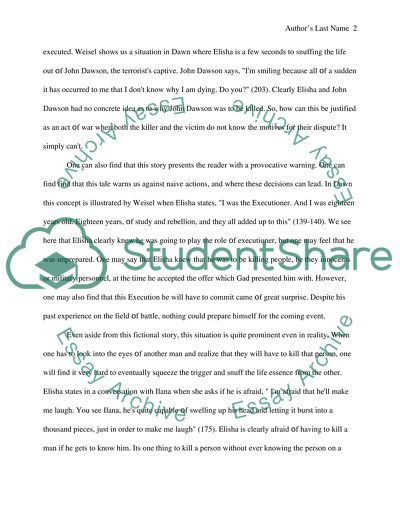Cite this document
(“Does war give the right to kill The study of the character of Elisha Essay”, n.d.)
Retrieved from https://studentshare.org/miscellaneous/1504603-does-war-give-the-right-to-kill-the-study-of-the-character-of-elisha-in-dawn-by-elie-wiesel
Retrieved from https://studentshare.org/miscellaneous/1504603-does-war-give-the-right-to-kill-the-study-of-the-character-of-elisha-in-dawn-by-elie-wiesel
(Does War Give the Right to Kill The Study of the Character of Elisha Essay)
https://studentshare.org/miscellaneous/1504603-does-war-give-the-right-to-kill-the-study-of-the-character-of-elisha-in-dawn-by-elie-wiesel.
https://studentshare.org/miscellaneous/1504603-does-war-give-the-right-to-kill-the-study-of-the-character-of-elisha-in-dawn-by-elie-wiesel.
“Does War Give the Right to Kill The Study of the Character of Elisha Essay”, n.d. https://studentshare.org/miscellaneous/1504603-does-war-give-the-right-to-kill-the-study-of-the-character-of-elisha-in-dawn-by-elie-wiesel.


